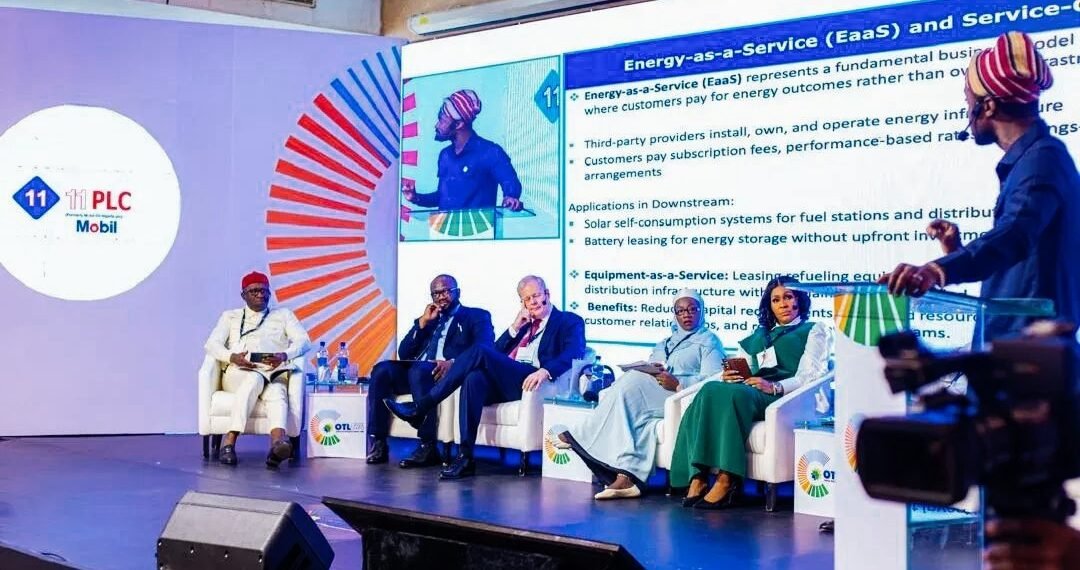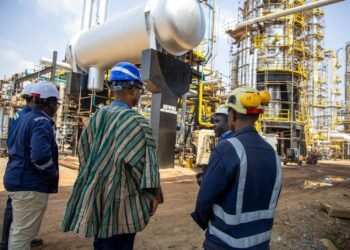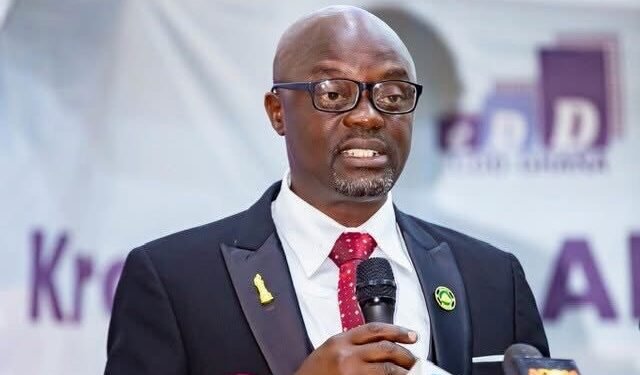Africa is poised to become the next major growth frontier for the downstream oil and gas industry, with the market projected to surge from $80.5 billion in 2024 to $120.8 billion by 2032, according to Dr. Riverson Oppong, Chief Executive Officer of the Chamber of Oil Marketing Companies (COMAC), Ghana, and Africa Regional Director of the OTL Africa Downstream initiative.
Delivering remarks at the OTL Africa Downstream Week 2025 in Lagos during a high-level session on “Emerging Business Models within the Downstream Landscape,” Dr. Oppong said Africa’s energy transformation presents a rare opportunity for value creation, investment, and innovation but warned that seizing this potential will depend on the sector’s ability to digitize and adapt to new business models.
“The traditional markets in Europe and North America are projected to experience declining demand by 2035, but Africa’s outlook remains strong.
“The continent is expected to record demand growth of about 2.2 million barrels per day between 2019 and 2035, a compound annual growth rate of 2.3%. That positions Africa as one of the fastest-expanding markets alongside South and Southeast Asia.”
Dr. Riverson Oppong, Chief Executive Officer of COMAC
According to a McKinsey analysis cited by Dr. Oppong, Africa’s expanding population, urbanization, and industrialization are driving energy consumption and investment interest.
However, he cautioned that growth must be guided by innovation and operational efficiency to remain sustainable.
Digitization as Cornerstone of Africa’s Downstream Growth
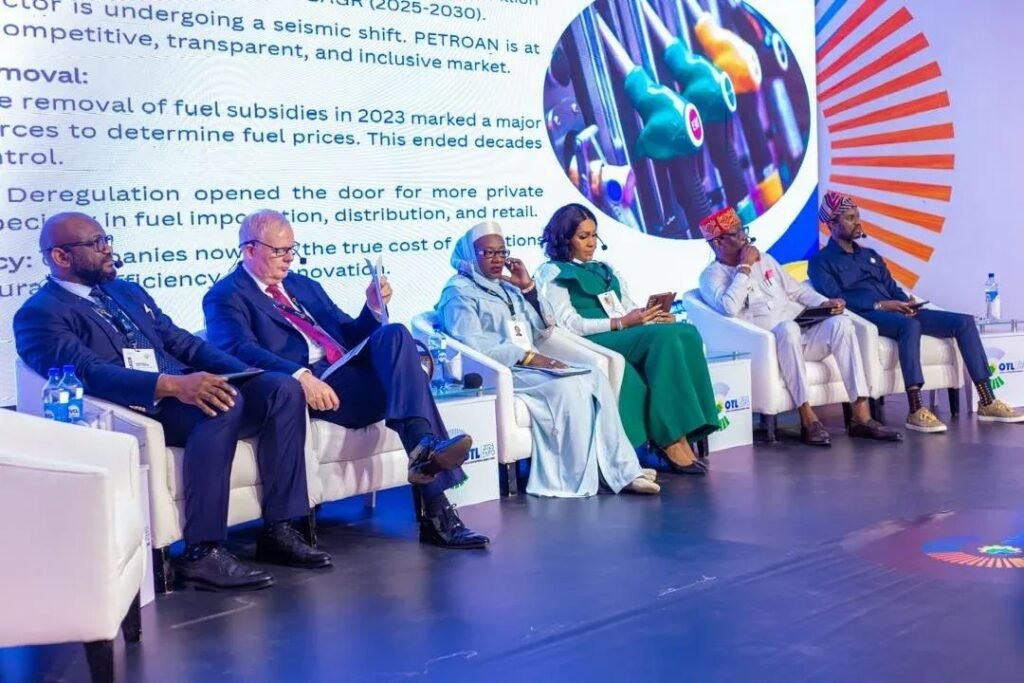
Dr. Oppong described digital transformation as the cornerstone of the next phase of Africa’s downstream evolution, emphasizing that digitization is no longer optional but a “strategic necessity for competitiveness and value creation.”
“Digitalizing downstream operations can deliver significant performance gains, including up to 20% reduction in operating costs, 12% improvement in throughput, and a 25% decline in unplanned shutdowns.
“When you combine these efficiencies, you not only cut costs but also build resilience in a volatile market.”
Dr. Riverson Oppong, Chief Executive Officer of COMAC
He pointed out that innovations such as Advanced Process Control (APC) systems, digital twins, and predictive maintenance tools can transform operations by using real-time data to optimize plant performance, anticipate equipment failures, and minimize downtime.
“With predictive and prescriptive maintenance, operators can analyze data to anticipate failures before they occur. That saves money, reduces risk, and ensures energy reliability.”
Dr. Riverson Oppong, Chief Executive Officer of COMAC
On the steps toward achieving digital maturity, Dr. Oppong urged energy companies to first assess their readiness, benchmark against global digital leaders, and develop a clear transformation roadmap.
Joint Ventures and Strategic Alliances for Resilience
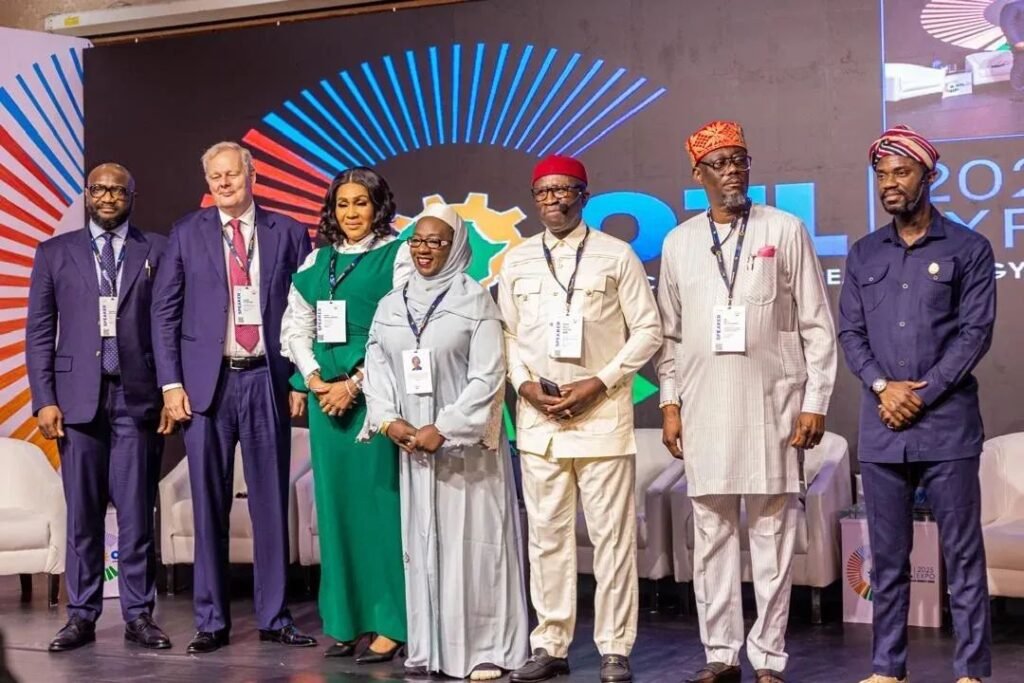
Beyond digitization, Dr. Oppong highlighted Joint Ventures (JVs) as an essential business model for managing capital intensity, sharing operational risk, and improving market access.
He noted that partnerships enable companies to pool expertise, leverage infrastructure, and achieve economies of scale in a competitive environment.
Using Ghana as an example, Dr. Oppong explained that while the country has over 200 Oil Marketing Companies (OMCs), the top ten control most of the market share, a situation that calls for strategic consolidation.
“Smaller operators can increase efficiency and competitiveness through alliances and shared infrastructure.
“Collaboration is the only way to build resilience in a fragmented market.”
Dr. Riverson Oppong, Chief Executive Officer of COMAC

Dr. Oppong emphasized that the success of emerging business models across Africa’s downstream oil and gas sector will depend on robust regulatory frameworks that foster innovation while ensuring safety, transparency, and environmental protection.
He called for greater investment in digital infrastructure, data analytics capabilities, and workforce development, noting that Africa’s energy future will depend on its ability to blend technology, skills, and strategic foresight.
“The downstream energy future belongs to those who can harness data, integrate automation, and upskill their people.
“Technology must work hand in hand with talent.”
Dr. Riverson Oppong, Chief Executive Officer of COMAC
Dr. Oppong emphasized that Africa’s energy narrative must shift from potential to performance through long-term strategic planning, digital innovation, and collaborative investment.
As global markets mature and decarbonization trends reshape demand, experts agree that Africa’s combination of resource wealth, youthful population, and expanding middle class could make it the world’s last major frontier for downstream energy growth.
READ ALSO: BoG’s $1.15bn FX Injection Sparks Clash with IMF and World Bank Over Cedi Stabilization

